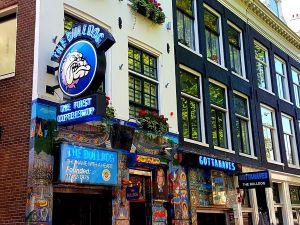The Dutch are set to embark on a pilot project of creating a legal supply for the country's famed cannabis "coffee shops," Gavin Newsom signs a bill clearing the way for the prescribing of MDMA and psilocybin once they are federally descheduled, and more.

California Governor Signs Bill Allowing Doctors to Prescribe Psilocybin, MDMA Once Federally Rescheduled. Gov. Gavin Newsom (D) on Saturday signed into law a bill that would let doctors start prescribing psilocybin and MDMA if and when they are federally rescheduled, Assembly Bill 1021.
Sponsored by Assemblymembers Buffy Wicks (D), Isaac Bryan (D) and Corey Jackson (D), the bill says if the federal government reschedules any Schedule I drug under the Controlled Substances Act, state health professionals will be automatically able to prescribe and dispense it. The most obvious candidates are psilocybin and MDMA, which have been designated as breakthrough therapies by the federal Food and Drug Administration (FDA) and are expected to be approved for medical use as early as next year.
Among nearly a dozen marijuana and drug reform bills still on Newsom's desk is Senate Bill 58, which would legalize the possession of small amounts of certain natural psychedelics, excluding peyote.
Drug Policy
Oregon Legislature Creates New Committee to Address Drug Addiction, Review Drug Decriminalization. The legislature has created a Joint Interim Committee on Addiction and Community Safety it a bid to tackle the state's drug use crisis. The committee's mandate is to make addiction services accessible, ensure that law enforcement has the tools to keep communities safe, and review drug policy, especially the drug decriminalizing Measure 110.
The decriminalization measure was approved by voters two years ago, but recent polling shows that a majority of voters (56 percent) are ready to repeal Measure 110 entirely, even though it includes hundreds of millions of dollars for drug treatment, prevention, and related services. An even higher number of respondents (64 percent) were willing to repeal just the decriminalization portion of Measure 110.
This work by StoptheDrugWar.org is licensed under Creative Commons Attribution-ShareAlike 4.0 International
Add new comment